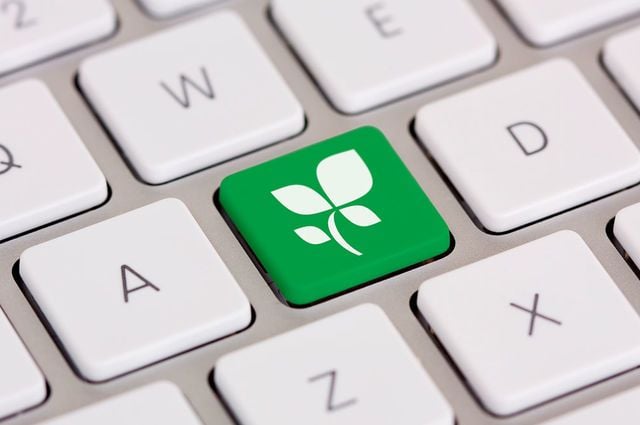Hotel Sustainability: Top 3 Technologies to Implement in 2020
21 experts shared their view
There seem to be two schools of thought in regards to achieving greater sustainability. One is based on a behavioural change to tackle societal and environmental challenges. More precisely in managing resources with moderation, restraint, and constraint (e.g. Reduce-Reuse-Recycle mantra). The other approach focuses on developing and implementing technologies to drive change. Here, the premise is that greater sustainability can be achieved if green technology is developed and deployed rapidly. With this in mind and considering the various sustainability challenges as hotels enter this new decade, what are the three (3) technologies to implement in 2020?"
Sustainable Tourism: Why Should Hotels Lead in This Effort?
I'm a bit advocate of focusing on achieving greater sustainability by focusing on the R of 'replace'. We live in a society that is used to certain standards & comfort levels. Getting the majority of people involved in living a more sustainable way, we should focus on creating innovations and using technology to replace products and services in the current wasteful way of living.
i therefore love the thinking behind the PaaS models coming online - it makes businesses thinking about creating items that are durable again, instead of working on a next/new model that comes on the market every few years in order to keep 'earning'.
- I believe solar PV systems should be a high priority, to relieve dependence on fossil fuels while reducing Opex.
- I'll go with waste heat recovery, IE using a heat exchanger to preheat water entering hot water tanks, by using the exhaust heat from either HVAC or diesel generators, etc. It's not as complicated as it sounds and there's typically a great ROI from the installation.
- Occupancy sensors ...and room automation to go with them. The real winners in this space will not only reduce their energy use but also engage guests! For example, the new guest app Hilton has developed that incentivizes guests to save energy with rewards perks (NOT my app but I wish it was!).
Utilities are 2nd highest cost of the hotel and of course, a reduced carbon footprint follows energy conservation. It's a win-win to cut these costs and be part of the solution to climate change. That's why I'm most excited about technology that helps in this area.
Our three technologies for 2020 are as follows: 1) Continuous performance monitoring, 2) submetering and 3) renewable energy. Let me take them one by one to unpack our approach.
- First, continuous performance monitoring is a technology used to optimize building performance by tracking preset factors (e.g. temperature, pressure, etc.) and providing real-time alerts if faults or inefficiencies occur. It offers instant feedback if anything breaks compared to reviewing actual utility consumption when bills are received.
- The second technology is submetering. Submeters monitor and record utility consumption (electricity, chilled water, hot water, etc.) in discrete areas of the building or for specific systems and send data usually in 15-minute increments for trend analysis. Submetering helps to reconcile business activity with utility usage (like an increased number of events in a certain ballroom), uncover inefficiencies such as simultaneous heating and cooling or validate conservation measures.
- Finally, renewable energy does not need further introduction. While we rely on renewable energy certificates (RECs) to offset some of our consumption, we continue to explore opportunities for onsite generation and, particularly, we are keeping our eyes on building-integrated photovoltaics (BIPV). BIPV are making rapid improvements in efficiency and offer a promise to complement energy efficiency projects in our resorts.
Top three technologies to implement in the world of hospitality, so that more sustainability-impact can be generated in 2020 could be:
- wherever possible, implement technology to reduce food waste (reducing inventory while connecting store-rooms and fridges/freezers via the IoT and to suppliers, as well as waste-scanning devices, so that food waste can be shifted and reduced) this will help improve guest-experience, reduce food-cost and reduce waste, hence reduce direct and indirect co2/GHG production.
- Digitize Building-Material Waste, so that it can be reused in new construction (such as advocated by www.madaster.com). This way the hospitality industry can show stewardship (and take responsibility in its own hands) and take circularity to the next level in our thinking and doing.
- And last but not least, and not so tech-driven, that we all take a step back to basics: use every management- and employee-meeting, Q-time and other staff gatherings, and put more sustainable solutions in our daily (work-)lives. To jointly work on this challenge, as the number one 'point' on that meeting's agenda. There is so much more to be had if we all pitch in that extra one action and improved work process...
Nowadays, ecotourism is globally perceived as one of the most resourceful industries to attain sustainable development. There is greater awareness on conserving natural resources and cultural patrimony, through tourism endeavors where profitability meets responsibility. Additionally, ecotourism reduces migration and safeguards local cultures by creating green jobs in remote areas.
The hospitality industry in Peru is shifting its mindset towards sustainable, eco-conscious practices. Inkaterra has contributed to this accomplishment, illustrated in the following trends:
1). A replicable model for waste management: Our industry is more aware of its carbon footprint and other forms of pollution it generates, such as single-use plastics. As designers of travel experiences where a destination's natural and cultural values are showcased, it is our duty to fulfill a pledge towards sustainability whilst empowering travelers and local communities to take part in conservation efforts. In that sense, Inkaterra pursued a strategic partnership with the Machu Picchu Town Hall and Peruvian beverage multinational AJE Group, to turn Machu Picchu into a replicable model on sustainability.
'Sustainable Machu Picchu' saved one of the New Seven Wonders of the World from its inclusion in UNESCO's Patrimony at Risk list. First came the donation of a compacting machine to process 14 tons of plastic waste each day. In 2018, Machu Picchu became the world's first destination to collect and process almost all it's waste cooking oil to produce biodiesel and petrochemical-free glycerin, avoiding on a monthly basis the spillage of 2000 liters of waste cooking oil to the Vilcanota River. Now, a pyrolysis plant decomposes organic waste through high temperatures to produce Bio-char, a nutrient-rich soil amendment used for local high-mountain agriculture and forest restoration with native flora (in alliance with SERNANP).
2). Travel experiences inspired by research and conservation: Travelers are seeking authenticity and learning opportunities. Travel must provide an enriching experience with respect to culture and nature. We are more aware than ever on hospitality's impact over communities and nature, and we are committed to their conservation through sustainable practices. There is also a trend towards niche markets – from gastronomy to birding, for instance. Aiming to innovate our industry, we must design travel experiences inspired by fact-based storytelling. In that sense, Inkaterra's activities are thoroughly inspired by our conservation endeavors in each destination.
In a recent article, the New York Times highlights science applied to expand ecotourism efforts. An approach Inkaterra pioneered in Peru since 1975, where scientific research is produced as a basis for conservation, education and the wellbeing of local communities. Since 1978, Inkaterra sponsors flora and fauna inventories to measure tourism's impact over areas of influence. To date, 903 bird species (equivalent to Costa Rica's total bird diversity), 365 ant species (world record sponsored by Harvard biologist E.O. Wilson), 313 butterfly species, 372 native orchid species, and over 100 mammal species have been inventoried within hotel grounds and surroundings. 29 new species to science were found at Inkaterra environs.
“Some hotels, lodges, and resorts have taken similar steps as Inkaterra, hiring scientists to conduct serious academic inquiry while also offering nature tours, workshops, and classes for guests,” stresses NYT collaborator Abby Ellin. Two outcomes are the Inkaterra Canopy Center for outdoor training and academic courses in Madre de Dios, as well as the GreenLab, the first DNA analysis lab in the Amazon creek.
Read more: https://www.nytimes.com/2019/11/13/travel/ecotourism-scientists.html.
Thinking about what top what three technologies I would see embedded in a 2020 Hotel, the first thing I would consider is analyzing in what stage the Hotel is at the transitioning to a Sustainable property, so we can prioritize the investment for these three tech solutions needed. I would consider smart building resources and reducting emission technology such as blockchain (this tech is also being used for loyalty programs and to influence consumer behavior).
Secondly, food waste management software such as Winnow. Lastly, software (such as Turnkeygroup) that gathers operational and strategic Data and analyzes ESG's risks for a more informed and efficient decision making.
Furthermore, it helps to know the cost of not taking action (especially for CFO's) and drives responsible investment. This scenario is where are considered not only environmental risks for the business but also social and business governance risks (that it directly affects and involves the supply chain and overall business stakeholders). I do think and strongly recommend that before implementing these technologies, exists a mindset shift, leaders' commitment and workforce understanding of the driving forces behind these technologies so we can successfully implement them.
There are no doubts that clean technologies play a tremendous role in mitigating our emissions. The global community has delayed climate action and the coming decade is crucial in pulling our emissions down and (possibly) implement some negative-emissions technologies.
In the meantime, the World Resource Institute (2019) estimates that roughly US$25 trillion need to be invested in clean, affordable and reliable energy infrastructures over the next 15 years. This would ensure a shift into a low-carbon economy. Besides investing in renewable energy (RE) production, energy efficiency (EE) is often a highly cost-effective path to take. Bottom line: every sector of our economy, including the hotel sector, is required to implement clean technologies to achieve decarbonization.
With this in mind (RE & EE), here are my Top 3 Technologies to Implement in 2020:
1 - Solar Photovoltaic (PV): In Germany, the price for a typical 10 to 100 kilowatt-peak photovoltaic(kWp) rooftop-system was around €14,000/kWp in 1990. Now, such systems cost about €1,070/kWp on average –a net price regression of 92% over that period. The story on the cost of solar PV is similar across many regions with a global weighted average cost of US$1210/kW (WEF, 2019). It is estimated that solar PV will be the cheapest electricity source by 2030 (Energy Intelligence).
2 - Occupancy Sensors: Data shows that 65% of the energy is used for heating, ventilation and air conditioning (HVAC) and lighting purposes of a hotel building (depending on the geographical location). There has been a massive improvement in technology linked to energy management systems. Thermal occupancy sensors, motion detection, and network presence sensing all have the potential to reduce guestroom's energy intensity from lighting and HVAC.
3 - Carbon Measurement Tools: How do we know that our RE and EE efforts are making a difference? Auditing a property's starting position and keeping track of progress towards decarbonization is crucial. Large chains often have a proprietary system in place. Smaller chains or individual properties can use available third-party tools. The Hotel Carbon Measurement Initiative (HCMI) developed by the International Tourism Partnership and the World Travel & Tourism Council (with the support of leading hotel chains), used by some 24.000 hotels worldwide is a good place to start. For small and medium-sized hotels in the European Union, the Hotel Energy Solutions (HES) e-toolkit* is an online platform for simple hotel energy audits and carbon emission calculations. The tool also provides guidance for solutions, has a Return on Investment calculator and offers benchmarking possibilities.
*HES is a UNWTO-initiated project in collaboration with EU leading agencies in Tourism and Energy as well as the IH&RA
If someone came up with a few cost-effective, practical and magical technical fixes that allowed hotels to operate with a minimum amount of water, energy, materials, and chemicals, those would be my obvious choices for the Top Technologies for hotels to implement in 2020. However, since that won't happen, my choices for 2020 and beyond are the following software upgrades.
- For architects and designers, the knowledge and care to design buildings that not only look good but also work well and efficiently.
- For hotel owners and GMs, the vision to base decisions on more than just capital costs and to realize that embracing sustainability is the surest path to enhanced profitability.
- For heads of departments and general staff, the wisdom to refrain from rushing to “get the job done regardless of the cost” and to consider more carefully the impact of their actions on the hotel's operating costs and resource efficiency.
Hopefully, with these upgrades, we'll finally be able to take full advantage of the hundreds of established good practices and existing technologies that could make hotels significantly more sustainable and profitable almost overnight but that, so far, have been largely overlooked by properties worldwide.
We will need a two-pronged approach, no doubt. Behavioral change of consumers, on the one side, as well as technological upgrading of the industry on the other side. Given the current scientific (and most of all: pessimistic!) outlook on how rapidly the climate crisis will strike over the next years, I fear that focusing on changing the behavior of billions of consumers – many of whom have not even come around to the notion of a 'climate crisis' – will not happen fast enough. In contrast, new technologies that, at best, even offer new business opportunities, will likely be adopted more rapidly.
Again, there will be technologies that offer an immediate win-win scenario (LED lighting: easy to install, broad application, quick payback time) and those that might not ever come with a positive impact on the companies bottom line, for instance LEED or DNGB-certified buildings. Looking at the impressive international hotel project pipeline, It is the latter, however, that we need.
Here is your top three technologies, dear hotel companies:
- Build zero-energy buildings
- Build zero-energy buildings
- Build zero-energy buildings
The best technology is the technology that you have in hand. For example, I invested in a brand-new top of the range camera for photography yet 98% of all my photos are taken using my mobile phone. Similarly, hotels forget the incredible technology they have at hand and many hoteliers are underutilising it. That is information technology and anyone from an SME to a large corporate hotel have the infrastructure that with a few tweaks they can enable their management to make decisions on how to reduce their co2 emissions based on science-based targets or what results from your efforts for a more sustainable hotel yield.
Having the hardware infrastructure ready the only missing components are some basic sensors, a management sustainability program and a conscious effort at towards a more sustainable organisation. For example, reducing co2 emissions is not only for the good of the planet but also for better air quality for your staff and guests. Installing new light bulbs or smart energy systems or even technology such as solar panels is more meaningful if you have accurate reports that show your incremental improvements in your hotel every time you may invest into new sustainability-focused technology.
With that in mind my top 3 technologies to invest would be
- better utilisation of your information technology
- sensor tech
- smart energy tech.
Our research shows that the hotel industry must reduce is absolute carbon emissions by 66% by 2030 to ensure that growth in the sector is sustainable. To support the sector to join in reducing emissions at scale, ITP has developed the Hotel Carbon Measurement Initiative (HCMI). Currently being used by over 25,000 hotels globally, HCMI is a free methodology that enables hotels to measure and report on the carbon footprint of a hotel stay or meeting in a consistent way. HCMI allows hotels to:
- Demonstrate commitment to environmental management;
- Understand their environmental impact, and start to reduce it;
- Support corporate customers in collating accurate data on their business travel emissions;
- Provide data to customers to offset their emissions, should they choose to do so; and
- Benchmark their emissions against competitors.
Water scarcity affects more than 40% of the global population and countries forecast with highest water stress are among those with greatest tourism growth. To enable the hospitality sector to embed water stewardship programmes to reduce the number of people affected by water scarcity and to identify ways to address it, ITP has developed the Hotel Water Measurement Initiative (HWMI). HWMI is a methodology to calculate the amount of water used in a hotel per occupied room (and per guest night, where data are available) and per area of meeting space per hour. With over 15,000 hotels globally currently using HWMI, this technology allows any hotel, of any size, anywhere in the world, to measure and report on water use in a consistent way. Through HWMI the industry can:
- Demonstrate a commitment to addressing water scarcity - HWMI is a first step towards better awareness of a hotel's water consumption and thus better efficiency;
- Assess water scarcity in their areas of operation to make their approach to water stewardship more credible and to improve the risk analysis and sustainability reporting; and
- Benchmark their water efficiency against other hotels or hotel companies.
More information on how to use these tools can be found on ITP's website: https://www.tourismpartnership.org/resources/
Implementing large-scale technological changes in already existing buildings is challenging and often extremely costly. Nevertheless, new hotel buildings should consider sustainable design with low energy requirements. This includes the optimal use of natural energy such as sun-light, geothermal energy, wind, even water efficiency through rainwater harvesting systems, for instance. Additionally, both new and existing hotels should seriously reflect on implementing innovative technologies that intelligently and efficiently reduce food waste with a meaningful impact on F&B costs.
When I started consulting for the hotel industry it struck me that at least once in the seven years rooms are refurbished, and the whole inventory either thrown away or 'given' to staff (who on their turn may sell it under the local market price thus undermining local businesses). It occurred to me then, that the hotel industry should embrace cradle-to-cradle products and the 'product as a service' concept as soon as possible.
Secondly, listening to guests, I come to understand that they are indeed willing to join the sustainability effort but only if the hotel clearly invests in sustainability. Therefore, I would suggest technologies such as solar panels or roof wind turbines that are or can be made visible to guests.
Thirdly and finally, it seems to me that the hotel industry should immediately adopt all technologies that are no-regret, i.e. back of the house technologies such as insulation that increase guests' comfort and have a short pay-back period.
The top 3 technologies are social technology, high-resolution resource monitoring, and communication technologies. Our goal should be to reduce resource use, pollution, and waste, through an approach that improves guest satisfaction and staff loyalty. To achieve this we need to invest in improving the way we deliver hospitality and the manner by which guests consume it, which means integrating the way we use things much better. This is called social technology.
Secondly, we can reduce and improve without recording exactly what we are consuming and wasting in real-time. This requires low-cost high-resolution monitoring equipment. The output is illuminating I find for most clients.
Finally, we need to significantly improve the way we engage with guests and staff. I recommend real-time reporting using technologies that give them far greater levels of information, knowledge, and control. Buildings do not use energy and water nor do they make pollution…it is human behavior that does this and the three technologies I recommend do revolutionise hospitality.
The three technology to implement should be about (1) data monitoring; (2) app to engage staff & guests in sustainability and (3) food waste reduction. At Considerate Group, we focus on integrating technological improvements and behavioral change to achieve greater sustainability. And the way to achieve behavioral change (e.g. guest involvement) is to show data.
- Data Monitoring: So, we, therefore, launched a data-monitoring platform Con-Serve, which allows us to collect data on resource consumption (water, energy and Co2) in a hotel through real live data. It is a powerful online tool for many hotels enabling targeted reduction of operating costs and continual improvement, via tracking, visualizing, benchmarking and reporting of sustainability performance indicators. Con-ServeTM has been adopted by f hotels globally, such as Ruby Hotels, the Hoxton Hotel Group, the Oetker Collection, some Steigenberger properties, Qbic Hotels to name but a few (See: http://considerategroup.com/con-serve/)
- Staff & Guest Engagement: We also launched an App called Fluttr, which has the same goal of integrating real live data with behavioral change tips in order to achieve energy savings and ultimate reduce Co2 emissions for the hospitality industry as a whole (See: http://fluttr-app.com).
- Food Waste Reduction: Winnow offers technological innovations that enable hotels to track, measure, classify and ultimately reduce the amount of food waste - a topic that is now receiving the needed attention by the industry (See: https://www.winnowsolutions.com).
Before speaking about new technologies, I would highlight the fact that there is a huge need to monitor the consumptions (water and energy) AND to analyze these data AND to benchmark the results. I'm auditing many hotels where they collect tons of information from different sub-meters but there is no one in charge of looking deep into these data and "translate" them. It would make sense to switch from one technology to another only if there are clear indicators to decide where to start first.
Apparently, in tropical countries chillers and all the HVAC systems are the most consuming equipment. But what do we really know about it? Without monitoring, data analysis and benchmarking it's almost impossible to make an accurate decision.
Please, dear General Managers and hotel Owners, take some time to look at these data, not only from the financial point of view but also from the resource perspective. Think about how to reduce these consumptions, especially in a time where, in some regions of the world, water shortages are going to be the next business threat.
First of all, I don't think that one hotel should choose between behavioral change and technology, as tech without a change of mindset and SOPs has limited effect. Here would be my top 3 techs for 2020:
- Building Management Systems. Hotels consume a large amount of electricity for ventilation/AC, lighting, power systems, etc.., which generates a tremendous amount of CO2 emissions (Operational energy consumption of building represents 28% of global GHG emissions). Very often, clear understanding about when, where and how much energy is consumed by what equipment is missing.
- Smart Water Systems. Water is not (yet>) classified as a risk management issue for most hoteliers, with high-end hotels consuming sometimes literally thousands of liters per guest-nights, often in areas where freshwater is scarce. But the biggest challenge with this resource is that it is so cheap that it is often left unchecked, despite great paybacks for those addressing this issue seriously.
- Food Waste Analysis Technology, in particular, if it enables large portions of the operations to be covered (like the Food Excess Monitoring (FEM). Food and Organic waste represent approximately 50% of the hotel's waste in volume, and large hotels commonly throw away more than 1000kg per day. Most countries do not have a proper segregation system, so organic waste ends up in the landfill and creates methane, which is 21 times more potent than CO2.
Tech combined with nudging techniques (e.g. gamification) to create positive behavioral changes amongst staff and guests is what I hope to see flourish.
1) Renewable energy, because everything pretty much hinges on it... 2) A digital thermostat, for those archaic hotels that still don't have one - let's not forget that while we need to advance more technology and solutions, we also need to get the majority of the world's hotel stock to get in the game with basic proven solutions... and 3) The Greenview Portal of course!
There is of course a wide spectrum of technologies that the hospitality industry can deploy to achieve greater sustainability. I will therefore limit my answer to digital technologies and the three I would suggest to start implementing in 2020 are:
- Internet of Things (IoT) - Connecting the physical infrastructure to the web. This allows for hotels to collect data on everything from air-conditioning units and room thermostats to lifts and kitchen appliances.
- Big Data Analytics - Collecting vast amounts of data is of course not enough. It is even more important to make sense of the data collected. This is how you turn the data into a valuable asset which helps making changes that optimise physical infrastructure performance and achieve greater sustainability.
- Machine Learning - Programming the IoT network to automatically learn and improve based on past performance, experience and incidents. This for example allows for the system to learn to flag issues before they become problems, based on patterns that have been present previously when elements of the infrastructure have developed a fault.
As mentioned above, there in my opinion is so much that could be done to drive change by implementing technology. I however think that a significant part of the solution is to generate data on the performance of the physical infrastructure, monitor and analyse this data in order to make sense of it and to deploy elements of AI / machine learning to implement automatic and ongoing improvements to achieve greater sustainability.
The “behavioral change” school of thought is certainly the most important, yet, technology can accompany the process and certainly create awareness and help manage the change.
- Out of the numerous available, the primary technology to be implemented is certainly one allowing hoteliers to be “in the know”: data collection is key to understand the business and the way it evolves. Some real-time, geo-localized measurement systems, allowing engineers (and other staff) to be informed on consumptions (electricity, water, …) would be useful. Hilton's Lightstay was launched several years ago and some big players have followed or are preparing to. But what's (besides of Interel) commonly and “easily” made available to others? Not only these systems can adapt consumption, reduce it when and where needed but also allow for less time spent doing preventive inspections of all parts of building and equipments.
- A second thought goes to waste and particularly food waste. According to the World Food Program, nearly 800 million people in the world suffer from hunger. On the other side, some estimations indicate that 25% of food going through hotel kitchens ends-up at the trash. A full program on food waste, including technologies to measure and manage the food and reduce the waste, as well as train staff in an interactive (digital?) manner is necessary.
- Lastly, and because it is rather easy to implement, but that so many hotels still run on paper: aiming for a “paperless” experience for guests and staff. Property Management System (PMS) are many but there is often a monopoly situation when it comes to complex system allowing hoteliers to manage multi-units and departments.
It is comfortable to believe that technological development will deliver solutions to the pressing challenges of today and tomorrow - without us changing along the way. However, we need to understand that business, as usual, is not an option at all. Technology will most likely contribute to help us to become a smarter, fairer and more sustainable society. But we need to change as well.
Keeping that in mind, I think that the three technologies we need to implement by 2020 are:
- smart green mobility (beyond e-cars!)
- closed-loop technologies (including the substantial reduction of resource use) and
- implementation of truely green energy systems.





















